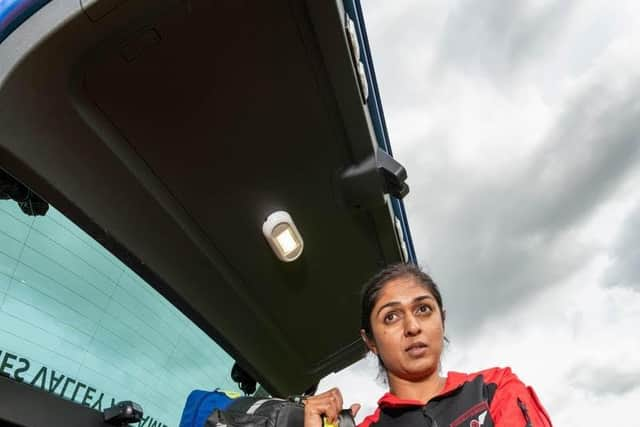Thames Valley Air Ambulance crews to trial use of ‘whole blood’ to help save lives
and live on Freeview channel 276
Thames Valley Air Ambulance crews are take part in a trial to carry ‘whole blood’ as part of their emergency care, for the treatment of patients suffering from severe blood loss.
The charity’s critical care team has joined nine other air ambulance organisations to use ‘whole blood’ as well as separate red blood cells and plasma, as part of the SWIFT (Study of Whole Blood in Frontline Trauma) trial.
Advertisement
Advertisement
The project is led by NHS Blood and Transplant in partnership with the Ministry of Defence and Air Ambulances UK.


If successful, the trial could reduce trauma deaths in civilian patients as well as casualties on the battlefield and in any situation where delaying a transfusion by minutes or even seconds could be critical.
Thames Valley Air Ambulance was the second HEMS (Helicopter Emergency Medicine Service) to carry blood on its emergency vehicles.
During the trial, which will last for up to two years, critical care crews will carry both whole blood and red blood cells.
Advertisement
Advertisement
TVAA Chief Operating Officer, Adam Panter, said: “"Patient care is at the very heart of all that we do at Thames Valley Air Ambulance and so we welcome the opportunity to look at innovations which may improve the outcomes for those suffering these kind of injuries.
“This trial forms part of a key area of work at Thames Valley Air Ambulance, looking at areas where patient outcomes can be improved and implementing treatments and techniques which give them the best chances of recovery.”
Thames Valley Air Ambulance crews currently carry red blood cells and plasma as they are easier to store and have a longer shelf life than whole blood which contains platelets.
Platelets, the part of the cell which helps blood to clot, must be stored at a set temperature and need constant movement to keep them oxygenated. This makes them difficult to use outside of hospitals which is why red blood cells and plasma are currently used.
Advertisement
Advertisement
The blood used for the trial will be O Rh negative, the ‘universal donor’ blood type which is used in emergency care, when there is no time to check the patient’s blood type before transfusion is started.
Dr Laura Green, co-chief investigator for SWIFT and Consultant in Haemostasis and Transfusion Medicine at NHS Blood and Transplant, said: “The role of air ambulances in providing blood transfusions at the scene of an incident is crucial - delivering the most challenging treatments in the most challenging environments.
“Any delay to starting transfusion during traumatic blood loss can reduce the chances of survival. We hope that SWIFT will show there are logistical and procedural benefits in giving a blood transfusion of all of the components in a single bag – and ultimately improved outcomes for patients.
“We are grateful to be working in partnership with air ambulance organisations and the Defence Medical Services to drive innovation and provide even better care to critical patients. We are also incredibly grateful to our O Rh negative donors, whose universal donor blood is critical in trauma transfusion - including in this trial.”